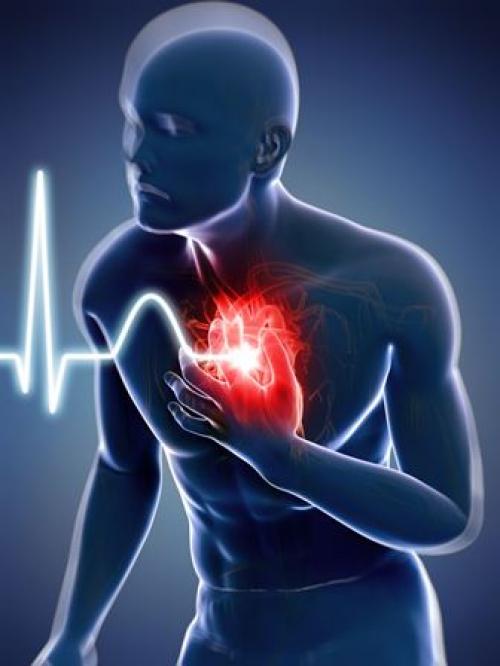India’s youth are now facing an unusual challenge – dealing with their unhealthy hearts. Indians are now getting heart attacks at a much younger age. Every minute, about four Indians in the age-group of 30-50 years experience fatal heart attacks. In fact, Indians get heart attacks 8-10 years before any other ethnic groups across the world. So, let’s take a look at the ‘why’ and ‘how’ of heart attacks in young India.
A Typical Scenario
You are 38 years old. You work in a bank at a mid-senior position. You married at 30 and have a child who is 5 years old. Your wife works as a counselor in a school. You are quite fit and go for a run four times a week, running for an hour each time. You go to the gym in your office twice a week for some weight training. You smoke occasionally and enjoy a drink on weekends, but you are conscious of your health and are careful not to go overboard. You last had a health check-up a year ago when you changed your job and joined a new bank as part of the joining requirements, and it was all normal.
So when one day, when you have had a particularly satisfying dinner at your wife’s favorite Chinese restaurant, and you wake up in the middle of the night with pain and uneasiness in the chest, you attribute it to acidity from the food, gulp down some antacid – it doesn’t really help but you ignore it and go back to sleep.
But, did you know it could have been a heart attack? Heart attacks need not usually come in a dramatic way like in the movies. There need not be a sudden pain in the chest making you reach in pain at the area where the heart is. There need not be a sudden fall to the floor. You may not have any discernible signs and symptoms even with a heart attack.
Age versus Heart Attack
While it is true that increasing age is a risk factor and heart attacks are more common after 45 in men and after 55 in women, with risk increasing as one grows older, a heart attack is far from rare in the younger age group of 30 to 40 years. Coronary Artery Disease (CAD) occurs at a younger age in Indians, with over 50% of CAD mortality occurring in individuals aged less than 50 years. Prevalence of acute MI (Heart Attack) as high as 25 to 40% has been reported in the young, that is patients below 40 years of age. Indians get a heart attack a decade earlier in their lives as compared to other ethnic groups. According to the Indian Heart Association, 50% of all heart attacks in Indians occur under 50 years of age and 25% of all heart attacks in Indians under the age of 40.
Why Indians are More Vulnerable?
What is it that makes Indians more vulnerable to heart attacks and at a younger age? Studies point to a different pattern of dyslipidemia (abnormal amount of fat in the blood) that is complicated by inherent insulin resistance that leads to early onset of diabetes. Other risk factors include smoking and use of other forms of tobacco and hypertension. Genetic causes too play a role, with familial hypercholesterolemia being a common cause of premature heart disease in Indians.
The effect of today’s modern lifestyle is a major factor in making Indians more vulnerable to a heart attack at a younger age, due to the high mental and physical stress resulting from competition and demands at the job. This causes them to pick up habits like smoking and alcohol which are risk factors for heart diseases. Lack of exercise and less sleep add to the problems.
Signs of a Heart Attack
It is therefore important to know the signs of a heart attack. These include discomfort in the chest that ranges from a slight pain or tightness to a feeling like an elephant is sitting on the chest; nausea, indigestion, heartburn, pain in stomach; pain spreading to the arm, mitral valve disorders a dizzy or lightheaded feeling; pain in the throat or jaw; feeling of exhaustion; unusually loud snoring that may sound like gasping or choking; sweating for no reason; a long-lasting cough especially with white or pink mucus; swelling in the legs, ankles and feet; and an irregular heartbeat.
Precautions
So if any of the above symptoms strike, it is important not to dismiss it as something else, but seek medical advice to rule out heart disease. We should not ignore warning symptoms just because one is too young to have heart disease or get a heart attack. It is important to remember that since atherosclerosis (deposit of fat in the blood vessels) starts early, prevention should also be started at a young age. The key is early diagnosis and treatment to manage the risk factors. One has to first bring about a change from a sedentary to at least a moderately active lifestyle with adequate physical exercise and a healthy diet, staying away from smoking and alcohol. Proper nutrition and diet are important with fewer oils and carbohydrates with more of protein including foods low in saturated fats with a lot of fresh fruit and vegetables.
The Bottom Line
Physical activity that includes cardio, as well as yoga and meditation for stress, should be included in one’s routine. Consult a doctor only when there is a medical emergency is not the right approach. It is important to diagnose any issues early with regular health check-ups especially after the age of 40. Get your heart screened regularly from your local healthcare provider. Most of the healthcare providers offer ComprehensiveHealthy Heart Check-upor Healthy Heart Packages.
After all, at the age of 35 to 40, one still the best part of one’s life to live!


















